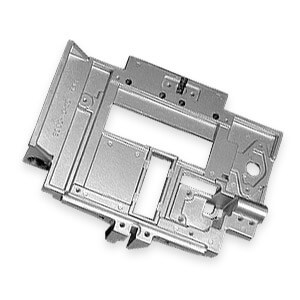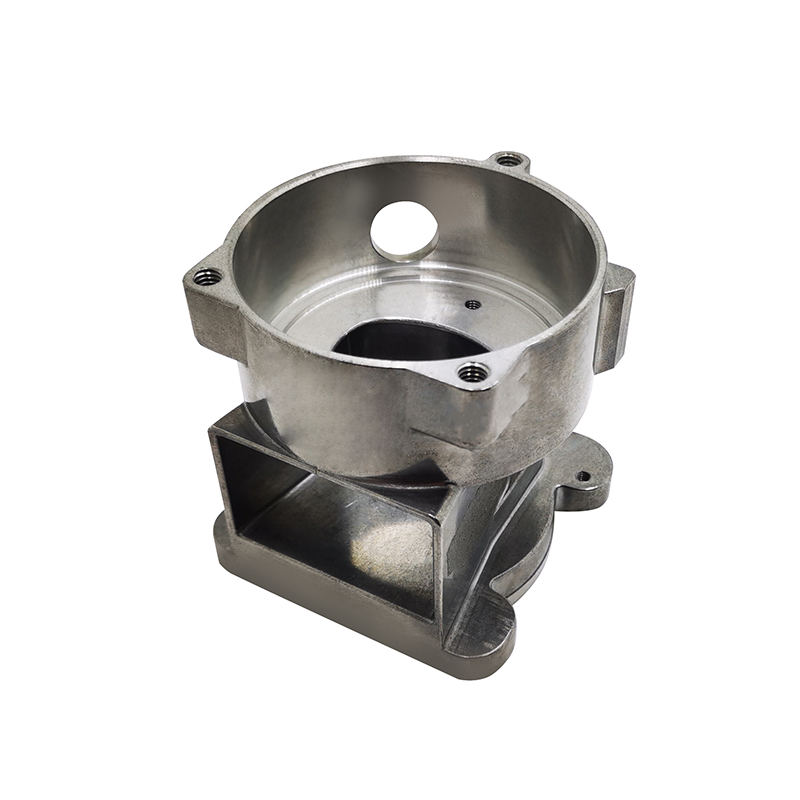Aluminum Casting Company innovations that transform industrial design
The Function of Aluminum Foundries ahead of time Lightweight Production Solutions
Aluminum shops greatly add to the advancement of lightweight manufacturing services. Their ingenious casting innovations generate high-strength, light-weight parts necessary for markets such as automobile and aerospace. This development not just improves product efficiency yet also advertises sustainability with making use of recycled products. As these foundries adjust to arising methods and modern technologies, they lead the way for future advancements in manufacturing efficiency and environmental duty. What exists in advance in this transformative journey?
The Benefits of Lightweight Products in Manufacturing
As sectors significantly seek effectiveness and sustainability, the adoption of lightweight products in production has actually become a crucial method - Aluminum Casting Company. These products, specifically aluminum and composites, supply many advantages that improve manufacturing processes and item efficiency. Primarily, their decreased weight contributes to reduce power intake throughout transportation and procedure, resulting in considerable cost savings
Moreover, light-weight materials help with the design of even more complex geometries, permitting greater development in product development. This flexibility typically causes enhanced capability and performance, dealing with the progressing needs of modern consumers.
Furthermore, the usage of lightweight materials can improve the long life of items because of their resistance to corrosion and fatigue. This durability not just decreases upkeep prices yet also supports sustainability campaigns, as longer-lasting products add to much less waste. To sum up, the benefits of light-weight materials are crucial in driving efficiency, technology, and environmental obligation in production.
Technologies in Light Weight Aluminum Spreading Technologies
Recent improvements in light weight aluminum casting technologies are revolutionizing the manufacturing landscape, specifically in the production of lightweight elements. Innovations such as high-pressure die casting and vacuum cleaner die spreading have substantially improved the accuracy and surface coating of light weight aluminum parts - aluminum casting. These approaches permit the production of complex geometries while lessening material waste and boosting mechanical properties

Additionally, the application of real-time surveillance systems guarantees quality assurance throughout the casting procedure, leading to more consistent product results. Collectively, these developments not just improve the performance of light weight aluminum components however also sustain the market's shift towards even more lasting manufacturing techniques.
Applications of Aluminum Components in Different Industries
While aluminum components have long been used in numerous industries, their convenience and lightweight residential or commercial properties remain to drive cutting-edge applications throughout markets such as automotive, aerospace, and building. In the auto market, light weight aluminum is progressively made use of for engine blocks, wheels, and body panels, improving gas effectiveness and performance. Aerospace makers utilize light weight aluminum for aircraft structures and components, maximizing its strength-to-weight ratio to improve gas economic climate and haul capability.
In the building and construction industry, light weight aluminum is preferred for window structures, roofing, and structural aspects, offering toughness and resistance to deterioration while minimizing overall building weight. Furthermore, the electric and electronics sectors take advantage of aluminum's conductivity and lightweight nature, using it in electrical wiring, rooms, and warm sinks. These varied applications highlight the crucial Discover More duty of aluminum parts, which not only fulfill industry needs but additionally add to innovations in item style and capability across numerous fields.
Sustainability and Energy Performance in Light Weight Aluminum Foundries
The aluminum factory market plays an essential duty in promoting sustainability and power effectiveness, particularly as demand for lightweight elements remains to expand throughout various sectors. Foundries are increasingly taking on eco-friendly techniques, such as utilizing recycled aluminum, which substantially lowers energy consumption and greenhouse gas exhausts contrasted to key light weight aluminum production.
In addition, developments in casting innovations boost power efficiency by maximizing the melting procedures and minimizing waste. Methods like die spreading and financial investment casting permit accurate product use, lessening excess and scrap.
Furthermore, many foundries are buying sustainable energy sources to power procedures, further lowering their carbon footprint. Applying power management systems allows factories to keep an eye on and boost energy use, guaranteeing they operate at peak performance.

Future Trends in Lightweight Production Solutions
Exactly how will emerging technologies form the future of lightweight production services? Technologies such as innovative products, automation, and additive manufacturing are readied to redefine manufacturing procedures. The assimilation of wise production innovations, including the Net of Points (IoT) and expert system (AI), will certainly enable real-time surveillance and optimization, boosting effectiveness and minimizing waste.

As sustainability continues to be an extremely important worry, light-weight services will increasingly concentrate on reusing and recycling products, straightening with round economy concepts. This development in light-weight production will not only boost product performance however also add to environmental goals, ensuring that the industry continues to be competitive in a quickly transforming market landscape.
Frequently Asked Questions
Exactly How Do Aluminum Foundries Ensure Top Quality Control in Manufacturing?
Light weight aluminum shops guarantee top quality control in manufacturing via extensive testing, standardized procedures, and constant monitoring - Aluminum Casting Company. They carry out advanced modern technologies and experienced employees to keep uniformity, decrease issues, and meet industry criteria throughout the production procedure
What Are the Main Challenges Encountered by Light Weight Aluminum Foundries?
Aluminum factories face obstacles such as changing basic material prices, maintaining manufacturing efficiency, guaranteeing consistent quality, adjusting to technical advancements, and meeting ecological laws, every look these up one of which impact their overall operational efficiency and competitiveness in the marketplace.
Exactly How Does Aluminum Recycling Impact Shop Procedures?
Light weight aluminum recycling substantially enhances foundry procedures by decreasing basic material prices, minimizing energy intake, and reducing environmental effect. This sustainable method enables foundries to boost effectiveness while meeting raising need for lightweight, high-performance aluminum products.
What Skills Are Needed for Workers in Light Weight Aluminum Foundries?
Employees in aluminum factories need skills in metallurgy, machining, quality assurance, and security methods. Effectiveness in running equipment, understanding alloy properties, and analytic are also essential for efficient production and keeping high safety standards.
Exactly How Do Aluminum Foundries Manage Waste Management?
Aluminum factories handle waste with recycling scrap metal, using reliable waste partition methods, and sticking to environmental laws. They carry out sustainable techniques to minimize garbage dump payments, ensuring that harmful products are dealt with sensibly.
Light weight aluminum shops substantially contribute to the evolution of light-weight production options. Current innovations in aluminum spreading innovations are reinventing the manufacturing landscape, specifically click here for more info in the manufacturing of lightweight parts. While aluminum elements have long been used in different sectors, their convenience and light-weight homes continue to drive cutting-edge applications across sectors such as vehicle, aerospace, and building and construction. Furthermore, the electric and electronic devices markets benefit from aluminum's conductivity and light-weight nature, utilizing it in wiring, rooms, and warmth sinks. The aluminum factory sector plays a vital role in promoting sustainability and energy effectiveness, especially as demand for light-weight components proceeds to expand across various fields.